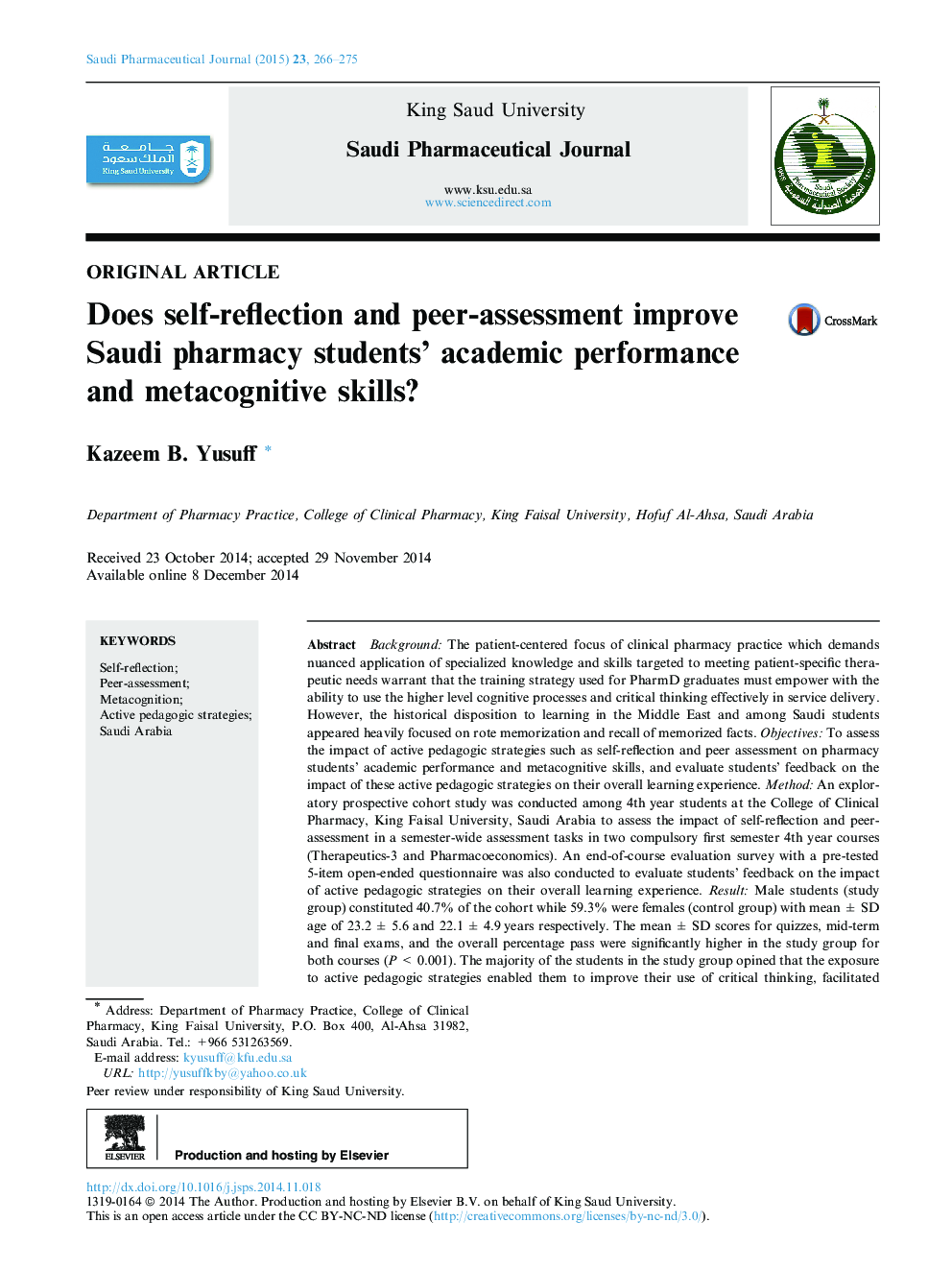| Article ID | Journal | Published Year | Pages | File Type |
|---|---|---|---|---|
| 2509505 | Saudi Pharmaceutical Journal | 2015 | 10 Pages |
Background: The patient-centered focus of clinical pharmacy practice which demands nuanced application of specialized knowledge and skills targeted to meeting patient-specific therapeutic needs warrant that the training strategy used for PharmD graduates must empower with the ability to use the higher level cognitive processes and critical thinking effectively in service delivery. However, the historical disposition to learning in the Middle East and among Saudi students appeared heavily focused on rote memorization and recall of memorized facts. Objectives: To assess the impact of active pedagogic strategies such as self-reflection and peer assessment on pharmacy students’ academic performance and metacognitive skills, and evaluate students’ feedback on the impact of these active pedagogic strategies on their overall learning experience. Method: An exploratory prospective cohort study was conducted among 4th year students at the College of Clinical Pharmacy, King Faisal University, Saudi Arabia to assess the impact of self-reflection and peer-assessment in a semester-wide assessment tasks in two compulsory first semester 4th year courses (Therapeutics-3 and Pharmacoeconomics). An end-of-course evaluation survey with a pre-tested 5-item open-ended questionnaire was also conducted to evaluate students’ feedback on the impact of active pedagogic strategies on their overall learning experience. Result: Male students (study group) constituted 40.7% of the cohort while 59.3% were females (control group) with mean ± SD age of 23.2 ± 5.6 and 22.1 ± 4.9 years respectively. The mean ± SD scores for quizzes, mid-term and final exams, and the overall percentage pass were significantly higher in the study group for both courses (P < 0.001). The majority of the students in the study group opined that the exposure to active pedagogic strategies enabled them to improve their use of critical thinking, facilitated deeper engagement with their learning and improved their clinical decision-making and discussion skills. Conclusion: The use of active pedagogic strategies such as self-reflection and peer-assessment appeared to significantly improve examination performance, facilitate deep and constructive engagement with learning and fostered students’ confidence in the use of critical thinking and clinical decision-making.
